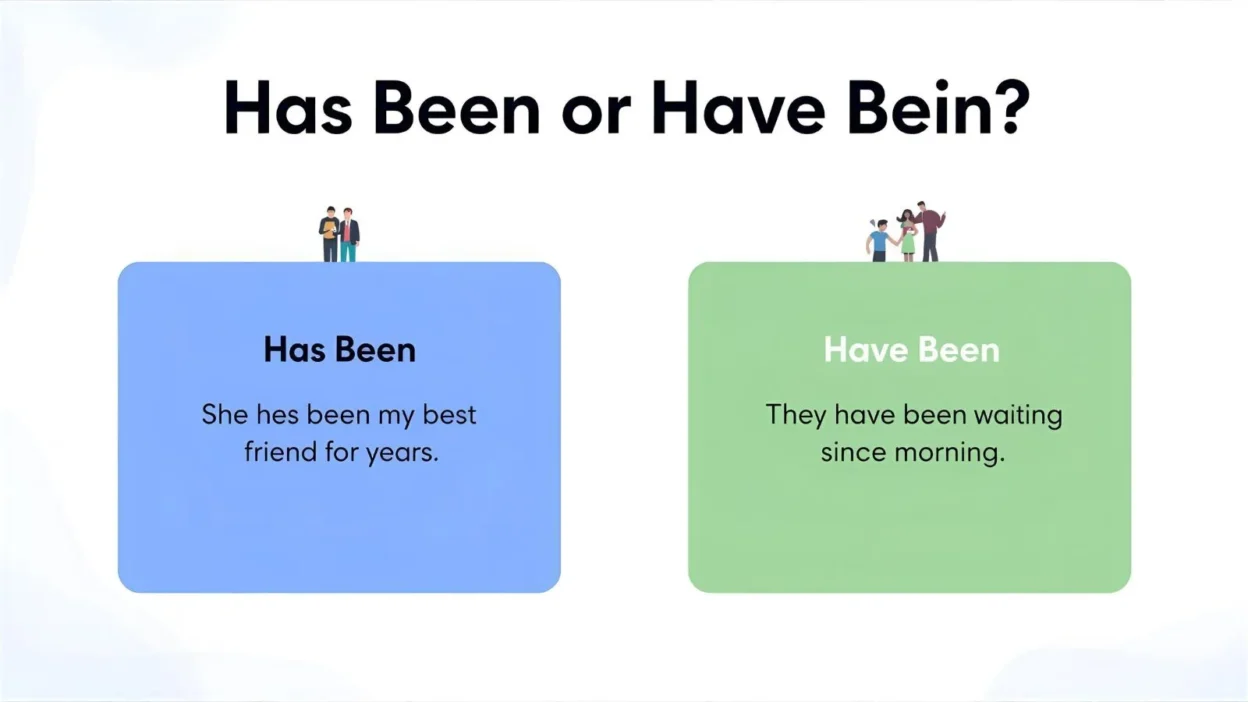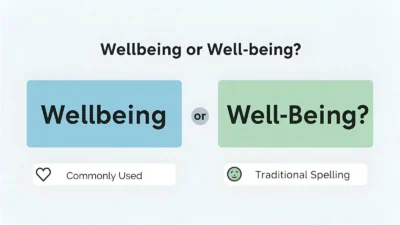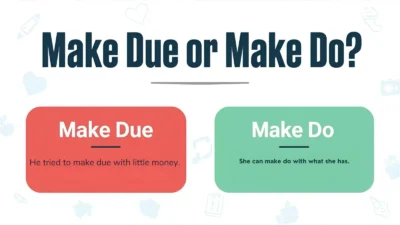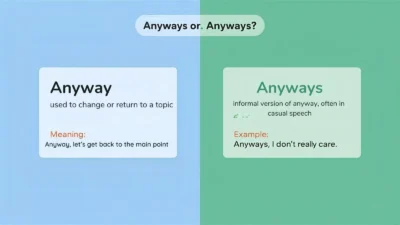Ever been stuck choosing between has been or have been in a sentence? Trust me, you’re not alone—English learners, students, and even professionals often get confused by this simple-looking rule.
I know how it feels when you want to sound correct but hesitate because you’re unsure. That’s exactly why I created this guide. With easy examples and clear explanations, you’ll finally understand the difference.
Keep reading, because by the end, has been or have been will never confuse you again!
Has Been or Have Been – Quick Answer
- Has been → Used with he, she, it, or singular nouns.
- Example: She has been working here for two years.
- Example: She has been working here for two years.
- Have been → Used with I, you, we, they, or plural nouns.
- Example: They have been waiting for the bus since morning.
- Example: They have been waiting for the bus since morning.
👉 Rule: “Has” = singular, “Have” = plural.
The Origin of Has Been or Have Been
Both forms come from Old English. The verb to be has always had irregular forms. “Has” is derived from hæfþ (Old English for “has”), while “have” comes from habban. The auxiliary verb “been” is the past participle of “to be.”
That’s why we say “has been” (singular subject) and “have been” (plural subject). The difference is not about spelling but about subject-verb agreement.
British English vs American English Spelling
The good news: Both British and American English use the same grammar rules for “has been” and “have been.” Unlike color/colour or center/centre, no spelling differences exist here.
What does differ is style. In the UK, you may see slightly more formal usage in newspapers and government documents. In the US, contractions like he’s been or they’ve been are very common in speech and writing.
Comparison Table
| Subject | Correct Form | Example Sentence |
| I | have been | I have been busy all week. |
| You | have been | You have been very helpful. |
| He/She/It | has been | She has been my friend for years. |
| We | have been | We have been to London twice. |
| They | have been | They have been traveling a lot. |
Which Spelling Should You Use?
- If you write for a US audience: Use contractions freely (he’s been, they’ve been).
- If you write for UK/Commonwealth readers: Formal forms (has been, have been) appear more in print.
- If you write globally: Stick with the full forms to avoid confusion.
Tip: Always match the verb with the subject first.
Common Mistakes with Has Been or Have Been
- ❌ He have been working hard.
✅ He has been working hard. - ❌ They has been late twice.
✅ They have been late twice. - ❌ I has been to Paris before.
✅ I have been to Paris before.
Rule reminder: Singular → has been | Plural → have been.
Has Been or Have Been in Everyday Examples
- Emails: I have been waiting for your reply since Monday.
- News reports: The company has been growing steadily this year.
- Social media: We’ve been trying this new trend—so fun!
- Formal writing: The policy has been reviewed and updated.
Notice how the choice depends on the subject, not on tone or style.
Has Been or Have Been – Google Trends & Usage Data
Search data shows that “has been or have been” is a common grammar query worldwide.
- India, Nigeria, and the Philippines lead searches, as English learners in these regions seek clear grammar guidance.
- US and UK users also search, often to confirm usage in professional writing.
- Global trend: Both phrases remain equally popular since both are correct but context-dependent.
FAQs:
Q1. Which is correct: has been or have been?
Both are correct depending on the subject. Singular = has been, plural = have been.
Q2. Can “I” take “has been”?
No. Always use I have been.
Q3. Is “has been” past tense?
It’s present perfect tense—it connects past action to the present.
Q4. What about “was” vs. “has been”?
Was = simple past. Has been = present perfect. Example: He was tired yesterday vs He has been tired lately.
Q5. Do Americans and Brits use them differently?
No difference in rules. Only difference is style and frequency of contractions.
Q6. Can I use “has been” for things, not people?
Yes. Example: The weather has been cold.
Q7. Why do learners mix them up?
Because “have” is often used broadly in conversation, making “has been” easy to forget.
Conclusion
The choice between “has been” and “have been” may seem small, but it makes a big difference in clarity. The rule is simple: singular subjects take “has been,” plural subjects take “have been.” This is the heart of present perfect tense.
Whether you are writing an email, a school essay, or a business report, using the correct form shows professionalism. There are no British or American spelling differences, so you only need to focus on subject-verb agreement.
In short, remember this: He/She/It → has been. I/You/We/They → have been. With practice, this will become natural and automatic.

I’m Emma Collins, a grammar expert and author at Grammarnestly.com. I love helping readers master English with simple, practical grammar guides.
When I’m not writing, I enjoy reading, coffee, and exploring the beauty of language.



